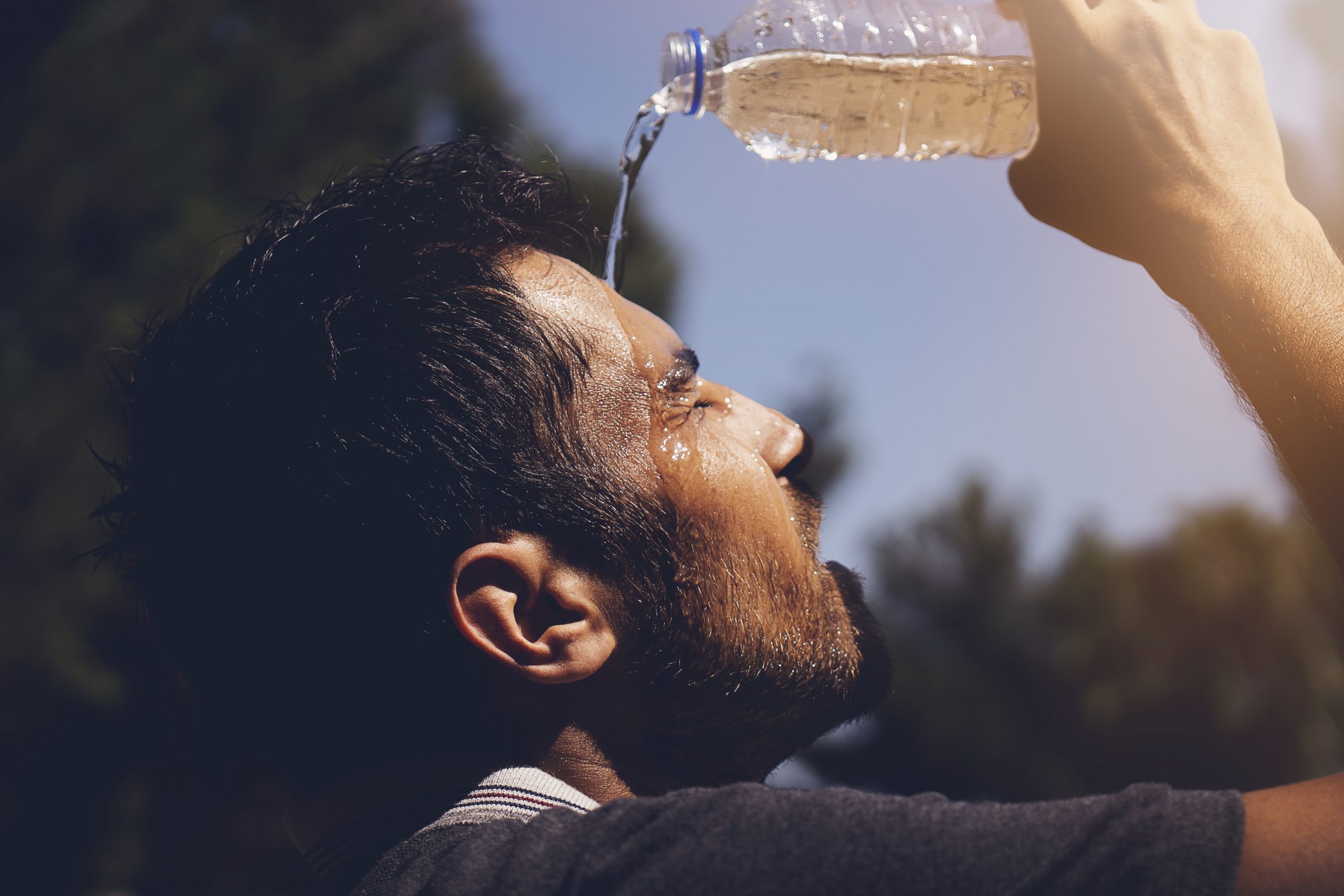Farmworker Advocates Call on Congress to Protect Workers from Dangerous Heat

September 22, 2022
This week, designated as National Farm Safety and Health Week by President Biden, Farmworker Justice delivered a letter from more than 50 farmworker-serving organizations demanding a full House vote on critical legislation to protect our nation’s farmworkers from the deadly impacts of extreme heat.
Every year, some 2.4 million farmworkers work in America’s farms tending crops and harvesting the food we eat. In places like Yuma County, AZ where the average high temperature in September is 102°F, being a farmworker means working through this brutal heat. But the problem is not confined to the West. Currently, the average U.S. farmworker endures 21 unsafe working days during the growing season. By mid-century that will increase to 39 days, or 25 percent of the growing season.1
These high temperatures lead to heat stress, dehydration, heat exhaustion and even death from heat stroke. Given the extreme conditions that farmworkers endure, it is not surprising that the death rate from heat-related illness in agriculture is 35 times higher than in other industries,2 or that farmworkers suffer from high rates of acute kidney damage, a precursor to chronic kidney disease.3 These dangers were discussed in detail during the Farmworker Justice Environmental Justice Symposium this past May.
Although employers can reduce these risks by providing workers with cool drinking water, and paid rest and shade breaks, the truth is that many farmworkers aren’t allowed these basic protections while on the job. Farmworkers tell stories of supervisors not allowing them to take necessary breaks, and not providing water or any kind of shade. For those who are paid based on productivity, or “piece rate”, taking unpaid breaks means losing income. And when the heat makes workers ill, too often there is no emergency plan in place to ensure they receive first aid in a timely manner.
As we highlighted in our 2022 Health Policy Bulletin, only California, Colorado, Oregon and Washington have workplace standards requiring employers to protect outdoor workers from the heat, while Maryland is in the process of developing one. Meanwhile, the Occupational Safety and Health Administration (OSHA) is working on a federal heat standard, but it may take years for the rule to be adopted and implemented. A bill pending in Congress, the Asuncion Valdivia Heat Illness and Fatality Prevention Act (H.R.2193), wouldhelp speed up this process. The legislation, named after a farmworker who died of heat stroke while harvesting grapes in California in 2004, would mandate that OSHA issue a heat standard within one year. It would also require OSHA to revise its standard for temporary labor camps to protect workers from hazardous heat in their living quarters. Farmworker Justice supports this legislation and has advocated for its passage.
States and the federal government should not wait for the next wave of heat-related deaths to have heat rules in place. As we have stated to OSHA, farmworkers need a heat standard that requires employers to provide drinking water, shade, paid breaks, acclimatization periods, and heat illness prevention and response training. Strict enforcement will also be key to the success of the rule. But in the absence of a federal standard, states should at least put emergency heat standards in place without delay.
1 Tigchelaar M, Battisti DS, Spector JT. Work Adaptations Insufficient to Address Growing Heat Risk for U.S. Agricultural Workers. Environ Res Lett. 2020 Sep;15(9):094035. doi: 10.1088/1748-9326/ab86f4. Epub 2020 Aug 25. PMID: 33133229; PMCID: PMC7594196.
2 Gubernot D, Brooke G, Hunting K. Characterizing occupational heat-related mortality in the United States, 2000–2010: An analysis using the census of fatal occupational injuries database. Am. J. Ind. Med. 58:203–211, 2015.
3 Mix J, Elon L, Vi Thien Mac V, Flocks J, Economos E, Tovar-Aguilar AJ, Stover Hertzberg V, McCauley LA. Hydration Status, Kidney Function, and Kidney Injury in Florida Agricultural Workers. J Occup Environ Med. 2018 May;60(5):e253-e260. doi: 10.1097/JOM.0000000000001261. PMID: 29271837.

